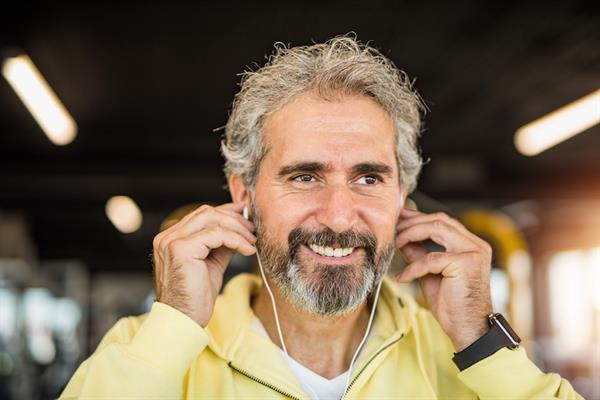
Reviewed By: Dr. Douglas Lord
Male Hypogonadism: Symptoms and Treatment Options
For some men, hypogonadism is present from birth, for others, it develops much later in life. Depending on the age of onset and the severity of the condition, male hypogonadism symptoms can vary. What’s most important to know about male hypogonadism is that treatment is available. Proper treatment can curb or eliminate male hypogonadism symptoms. If you or someone you love suffers from male hypogonadism, understanding the condition, recognizing the signs and seeking treatment can help. Here’s what you need to know.
What is Hypogonadism in Males?
Male hypogonadism is a condition that occurs when the body fails to produce adequate amounts of testosterone. Some people are born with male hypogonadism, while others develop it later, sometimes because of an infection or injury, other times because of stress, malnutrition, morbid obesity or because of medication.
Treatment depends upon the age of onset. Treatment for a baby born with hypogonadism may be different from the treatment of adult hypogonadism or even hypogonadism in young males. In addition, symptoms also vary depending on the age of onset.
Male Hypogonadism Symptoms
A male who is born with this condition may be born with underdeveloped sex organs, ambiguous sex organs, or female sex organs, depending on the severity of the condition. As the child grows, more symptoms of hypogonadism in young males may become clear, including:
- Delayed onset of puberty.
- Lack of body and facial hair.
- Excessive growth of arms and legs relative to the body.
- Development of breast tissue.
- Failure to develop some of the typical signs of puberty (deep voice, development of muscle mass and growth of the penis and testicles).
Adult hypogonadism comes with a different set of symptoms. See below:
- Decreased energy.
- Erectile dysfunction.
- Depression.
- Lethargy.
- Low sperm count.
- Hot flashes.
- Decreased sex drive.
- Infertility.
- Sleep disturbances.
- Decrease in muscle mass.
- Development of breast tissue.
- Loss of bone mass.
- Sweating.
- Poor concentration.
- Decrease in hair growth.
Treatment
Male treatment may include testosterone replacement therapy (TRT). Testosterone replacement therapy is administered and overseen by a physician who monitors the patient for results and adjusts doses as needed. Ongoing evaluation of the patient is important because TRT can complicate or worsen some conditions such as sleep apnea, congestive heart failure and prostate cancer.
Hypogonadism in Young Males
The condition in young males is sometimes treated with surgery, but is also treated with hormone replacement therapy. Patients work with their doctors to monitor testosterone levels and make adjustments as needed based on symptoms. Regular blood tests are needed to ensure that the doses of testosterone are administered in the correct amounts.
Adult Hypogonadism
Adult hypogonadism is diagnosed with a blood test to check for a normal level of testosterone. Sometimes hypogonadism symptoms occur because of an infection, a deficiency, or an injury. Treatment often involves lifestyle changes and behavioral changes such as:
- Exercise regularly. Engage in gentle exercise on a regular basis under the direction of a physician.
- Sleep well. Get between 7 and 9 hours of sleep per night. If you have trouble sleeping, shut out all lights from the room and stop looking at screens at least a half an hour before bedtime.
- Reduce consumption of alcoholic beverages. Men should drink no more than 2 alcoholic beverages per night. Consumption of more than that can inhibit testosterone development.
- Consume foods high in zinc. Zinc can help boost testosterone development. Consuming foods high in zinc (under the direction of your doctor) can help balance hormones.
These lifestyle changes are often only effective when they’re combined with bioidentical hormone replacement therapy. This treatment is a physician-monitored method of replacing hormones that have been lost. Bioidentical hormone replacement therapy (BHRT) is much more effective than traditional hormone replacement therapy because it’s administered by a doctor who monitors the levels of testosterone in your body, and makes adjustments periodically to ensure the levels are optimal.
Contact Nava Health and Vitality Center
If you’ve been diagnosed with male hypogonadism, the physicians at Nava Health and Vitality Center can help. We work with patients to create convenient virtual appointments. Our centers help patients around the country, and in-person appointments are also available at our flagship locations.

A Medical Director, and one of the first physicians to join the Nava Health & Vitality Center, Dr. Douglas Lord has made significant contributions to our Center and its founding principles. Dr. Lord has helped develop and implement the Nava Method™—Nava’s proprietary approach to total body wellness. He has also been instrumental in liaising with other expert practitioners to successfully implement Nava’s range of therapies, treatments, and products.